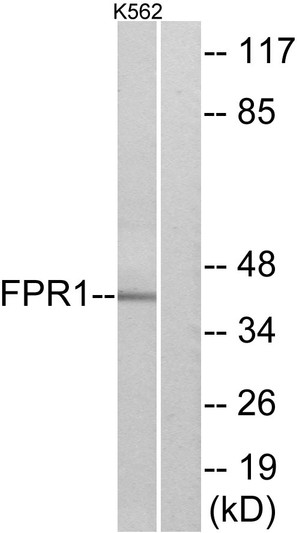| Post Translational Modifications | Phosphorylated.which is necessary for desensitization. |
| Function | High affinity receptor for N-formyl-methionyl peptides (fMLP), which are powerful neutrophil chemotactic factors. Binding of fMLP to the receptor stimulates intracellular calcium mobilization and superoxide anion release. This response is mediated via a G-protein that activates a phosphatidylinositol-calcium second messenger system. Receptor for TAFA4, mediates its effects on chemoattracting macrophages, promoting phagocytosis and increasing ROS release. Receptor for cathepsin CTSG, leading to increased phagocyte chemotaxis. |
| Protein Name | Fmet-Leu-Phe ReceptorFmlp ReceptorN-Formyl Peptide ReceptorFprN-Formylpeptide Chemoattractant Receptor |
| Database Links | Reactome: R-HSA-418594Reactome: R-HSA-444473Reactome: R-HSA-6783783Reactome: R-HSA-6798695 |
| Cellular Localisation | Cell MembraneMulti-Pass Membrane ProteinInternalizes In Presence Of Its LigandsFmlpTafa4 And Ctsg |
| Alternative Antibody Names | Anti-Fmet-Leu-Phe Receptor antibodyAnti-Fmlp Receptor antibodyAnti-N-Formyl Peptide Receptor antibodyAnti-Fpr antibodyAnti-N-Formylpeptide Chemoattractant Receptor antibodyAnti-FPR1 antibody |
Information sourced from Uniprot.org











